If They Could Pay Us Less, They Would
In this week’s Illustrated PEN, Guest Editor Meg Lemke presents Australian cartoonist Sam Wallman’s comic If They Could Pay Us Less, They Would, about the world’s wealth inequality and how the notion of minimum wage is being contested in the modern era.
Lemke writes: Happy almost Holidays. Many workers of privilege now begin to set their messages to out-of-office for a few weeks. We make lists about being thankful. Others start signing up for third jobs, as the service industry—minimum wage and part-time (overlapping with other part-time) surges seasonally. And for others, there’s never an off, the casual nature of the new social, tech-driven short-term work means you must always be available, in a gig economy, checking an automated message that is replacing, as Sam Wallman writes in If They Could Pay Us Less, They Would, the tradition of day-workers lining up in hopes of being picked up on the docks.
Across the country, politicians talk about what the people need. But the government didn’t provide protections for workers voluntarily; they were hard-fought, and men, women, and families died on those battle lines. Why do we have a minimum wage? Who is owed it? Who fought for it? Can we do, as a society, even better than minimum as protection for our shared humanity? What is the value of our lives, aside from grinding down to the lowest bidder?
Originally published on The Nib.

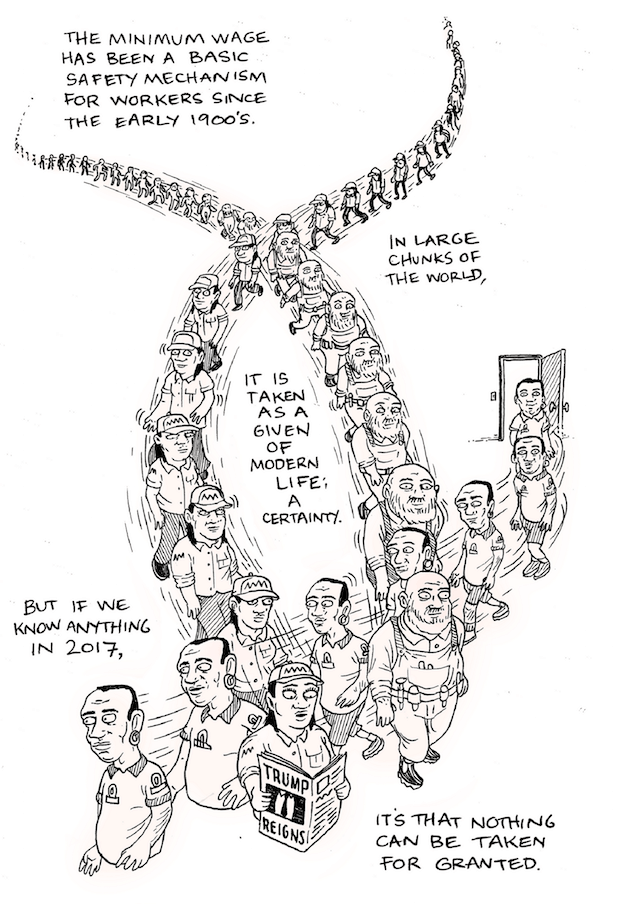
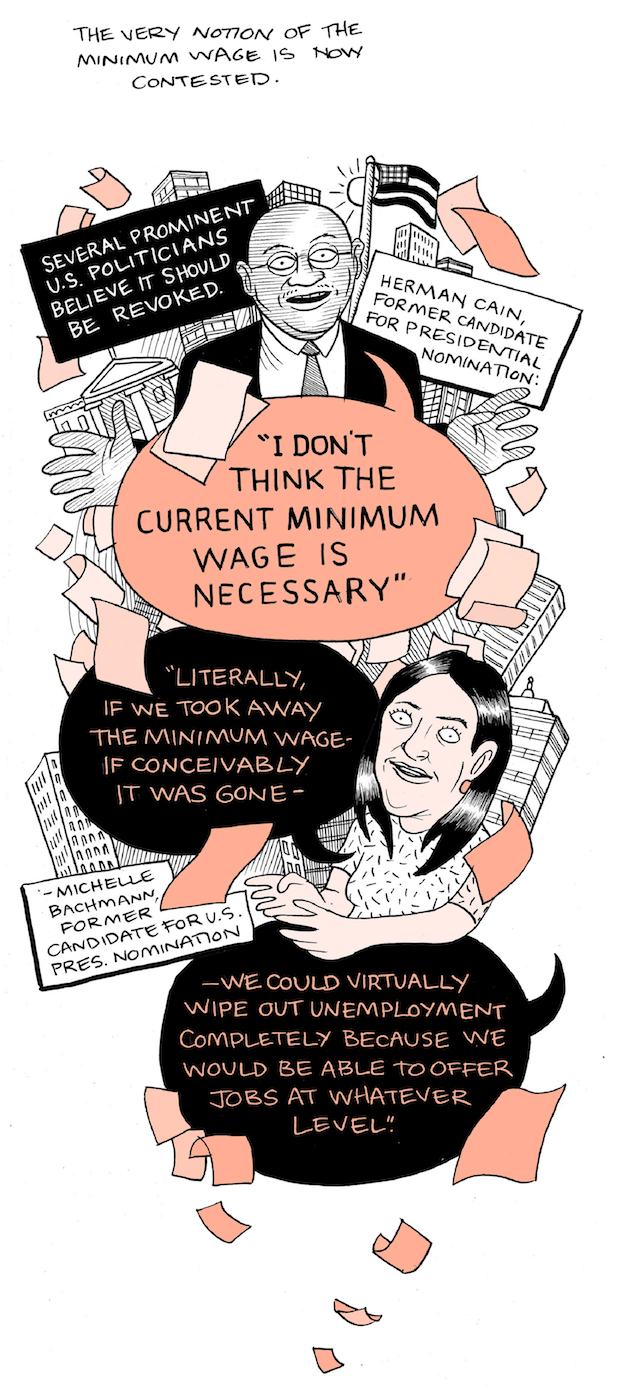


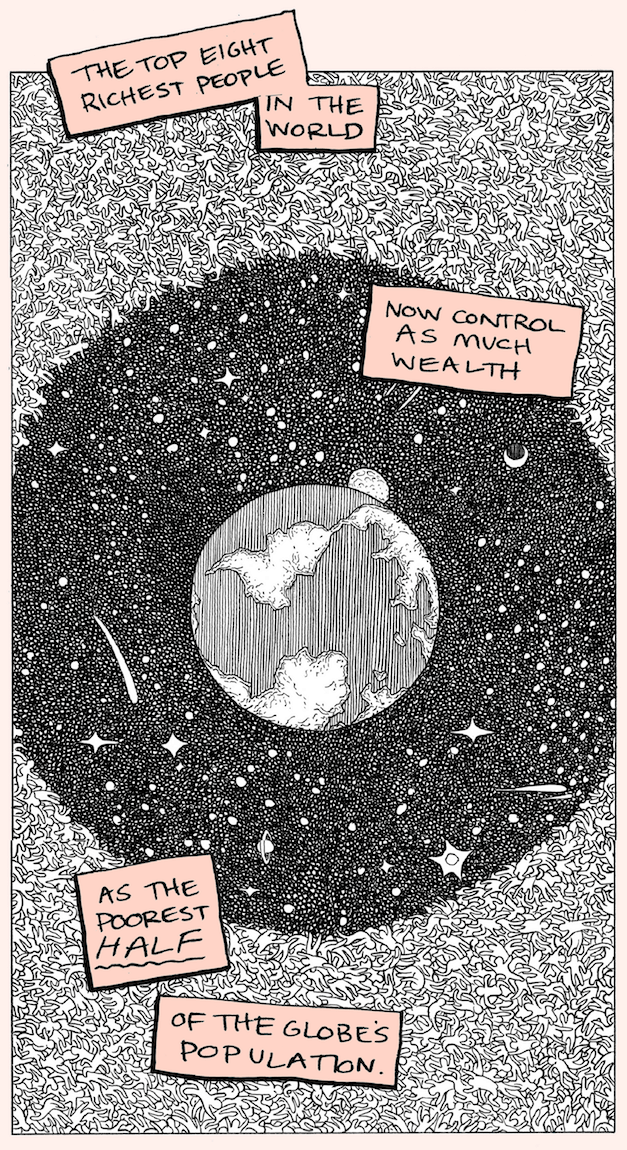

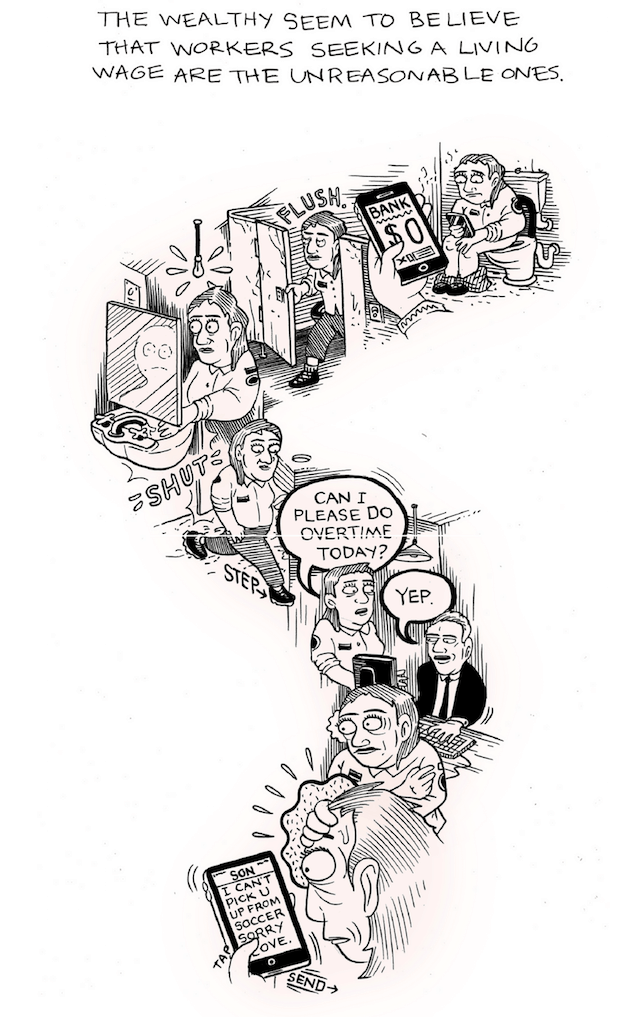

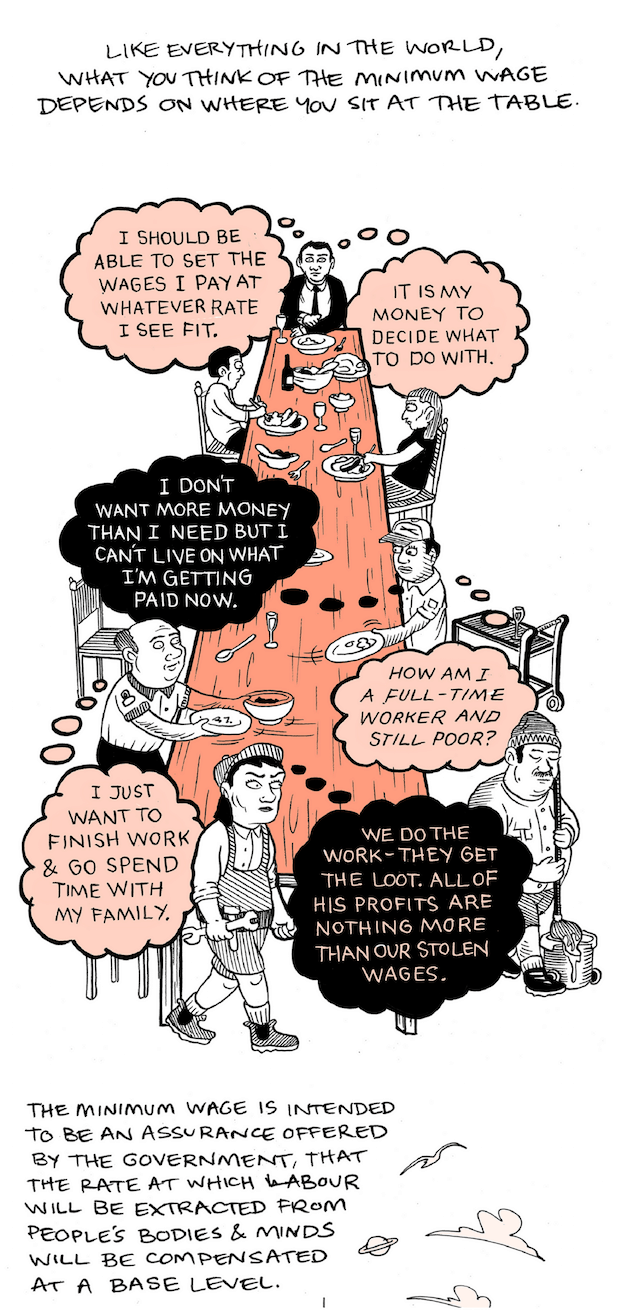
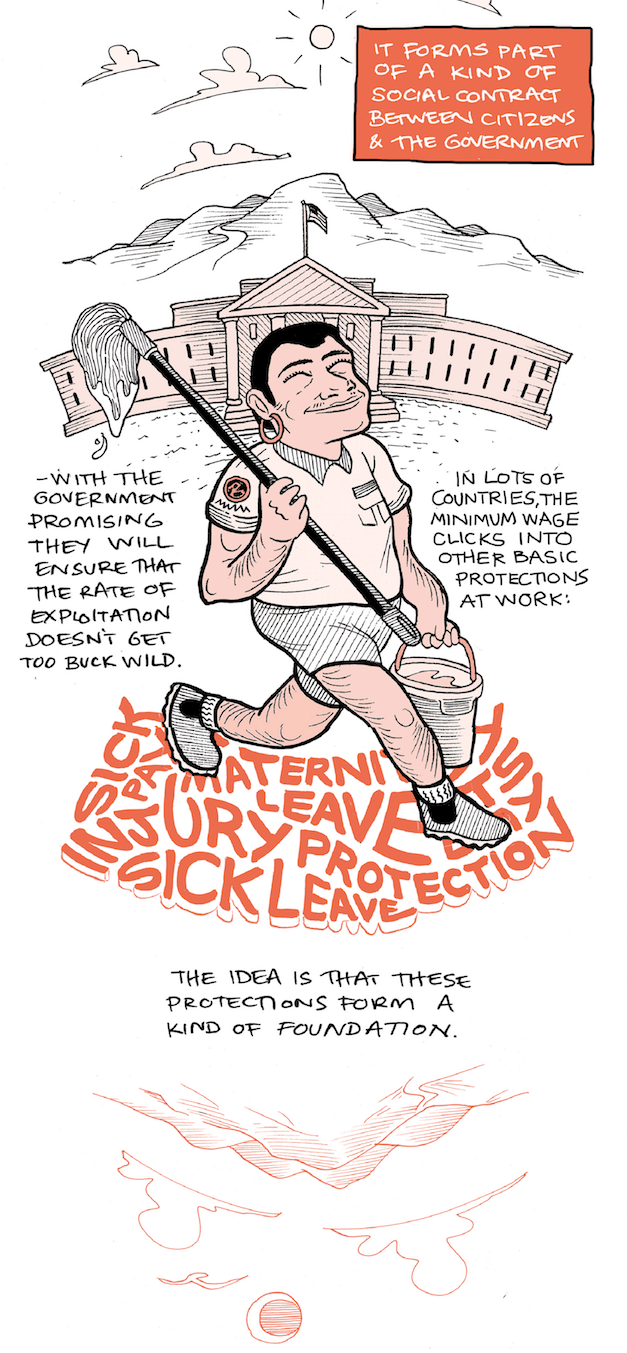



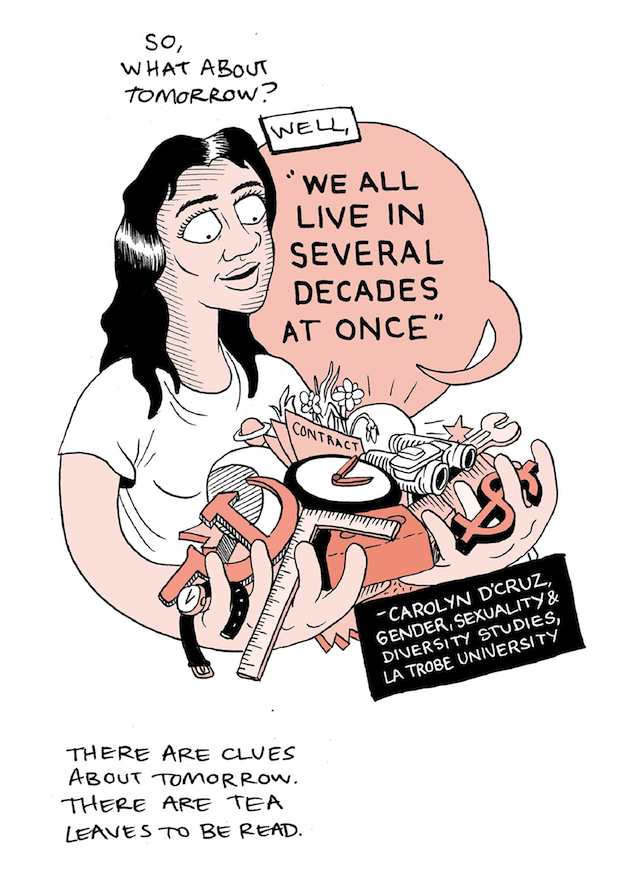




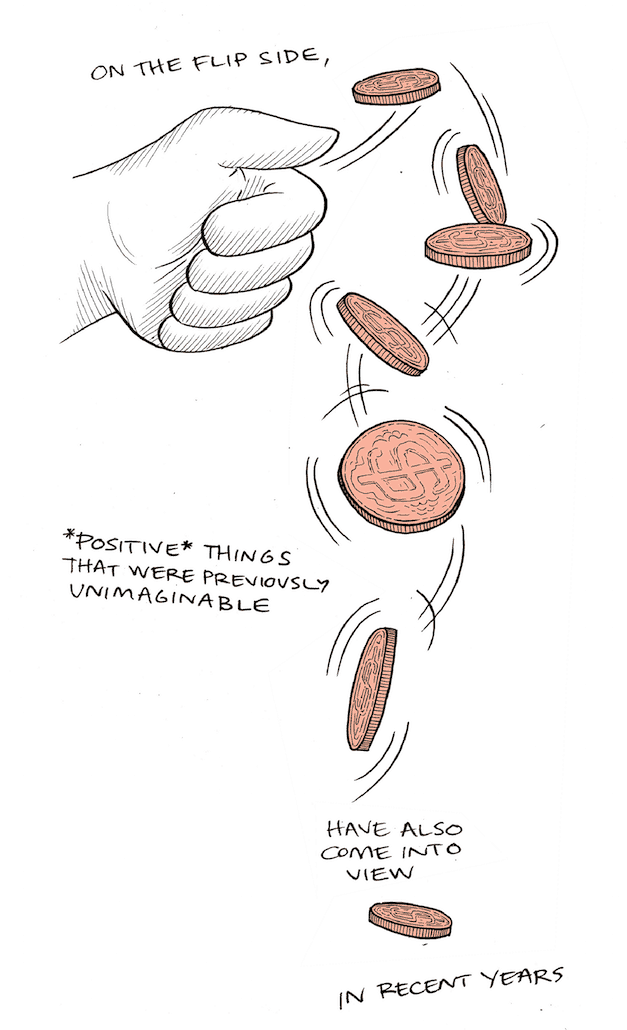



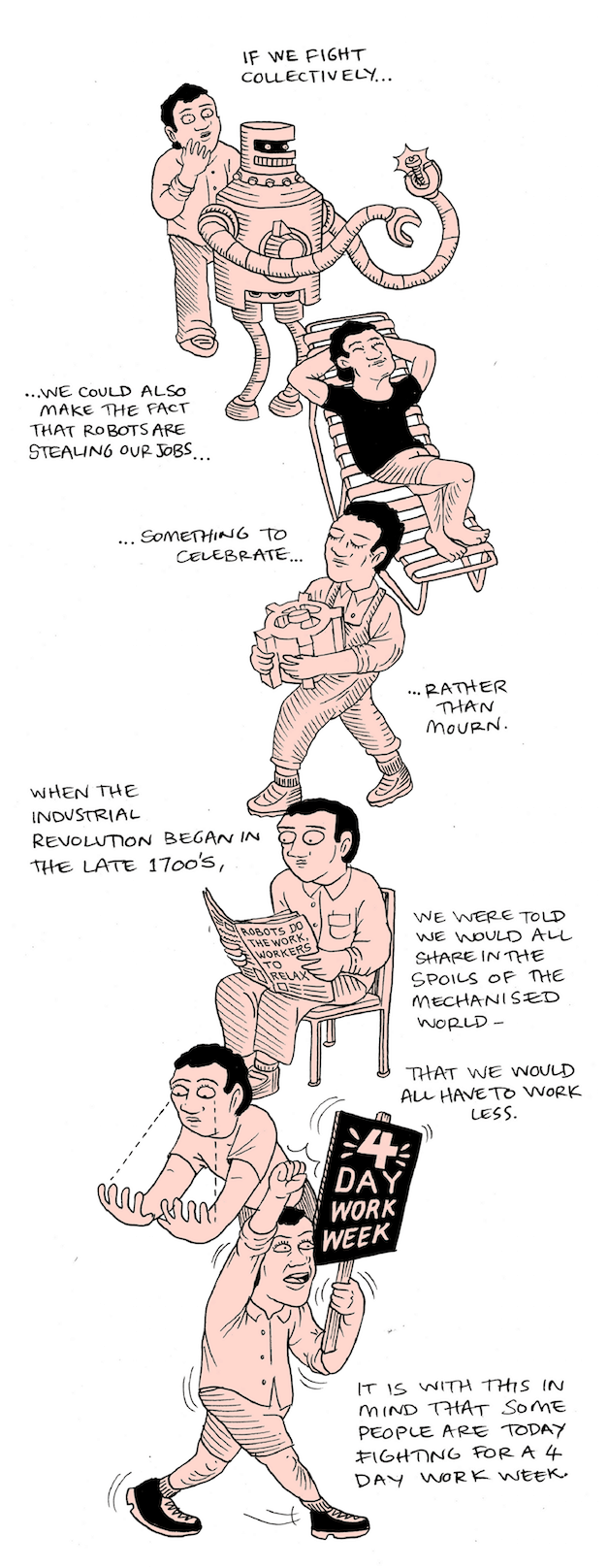

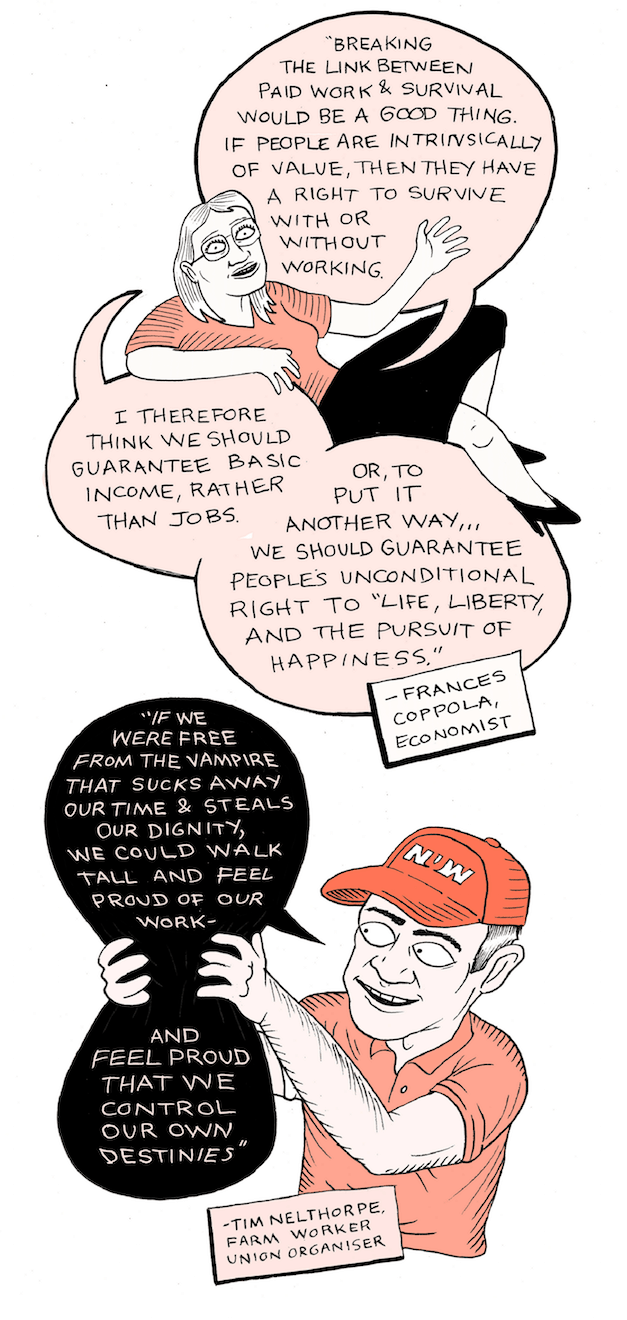



Sam Wallman is a political cartoonist, comics journalist, and editor based in Melbourne, Australia. He has drawn for outlets like the Australian Broadcasting Corporation, The Guardian, and The New York Times, and is currently an associate editor of Overland Literary Journal. He recently visited the United States to draw the presidential election campaign for Australian, Italian, and American media outlets. He is currently developing his first book-length comic, focused on the topic of ‘collectivism,’ to be released by Scribe Publications in late 2018. He is an active trade unionist and regularly draws in support of workers and their industrial organizing.






